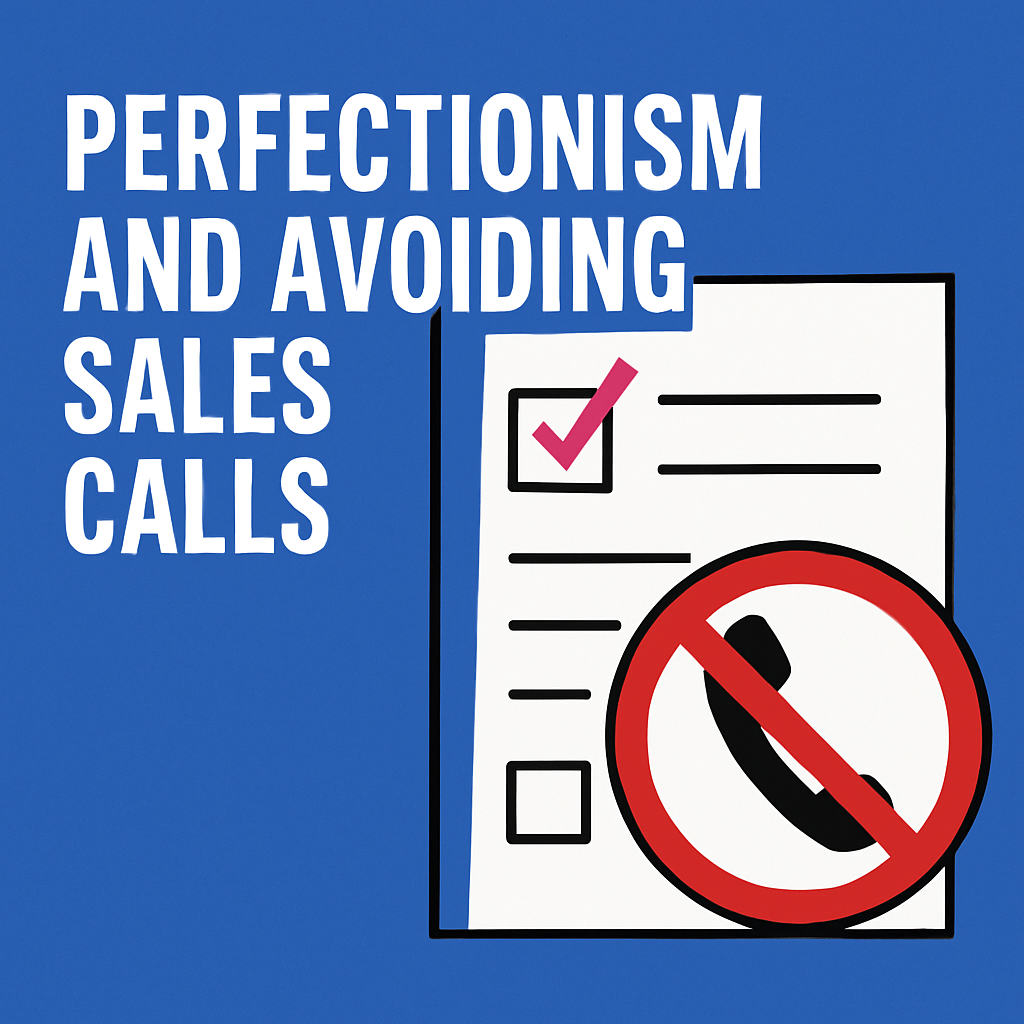The Hidden Link Between Perfectionism and Avoiding Sales Calls
In sales, we often focus on metrics like call volume, conversion rates, and pipeline health. But what if one of the biggest sales performance blockers is hiding in plain sight? Perfectionism in sales can quietly sabotage even the most talented reps, causing them to hesitate, overthink, and ultimately avoid making the calls that drive success.
If you’ve noticed a high-potential salesperson who seems stuck or hesitant to pick up the phone, perfectionism might be the hidden culprit.
How Perfectionism Sneaks Into Sales Performance
At first glance, perfectionism might look like a positive trait. After all, who wouldn’t want a rep who cares deeply about quality and accuracy? The problem starts when that drive for perfection shifts from healthy motivation to harmful hesitation.
A perfectionist salesperson often:
Over-prepares for every call and email, spending excessive time researching or scripting
Delays outreach because “it’s not the right time” or “the pitch isn’t ready yet”
Fears rejection because it feels like a reflection of their personal worth
Obsessively reworks messaging, proposals, or follow-ups long after they are good enough
The result? Fewer calls, slower activity, and stalled opportunities.
Perfectionism as a Sales Performance Blocker
While perfectionism may stem from good intentions, it creates a dangerous cycle for sales teams. The perfectionist rep avoids calls to protect themselves from potential failure. This avoidance leads to missed targets, which then reinforces self-doubt and intensifies the need to be perfect next time. Over time, this pattern can:
Lower overall call volume and pipeline generation
Reduce confidence in both the rep and the team
Create friction between reps and sales managers
Hurt morale and team dynamics
As a sales leader, recognizing this hidden pattern is key to breaking the cycle.
How Sales Managers Can Help Perfectionist Salespeople
The good news is that perfectionism in sales can be addressed with the right coaching and culture. Here’s how managers can support their perfectionist reps:
Set progress-based goals. Instead of focusing solely on outcomes like closed deals, encourage reps to hit activity milestones that build confidence over time.
Normalize imperfection. Share examples of successful calls or deals that started messy or didn’t go as planned. Reinforce that learning happens through action, not perfection.
Create safe practice spaces. Role-plays, call reviews, and team coaching sessions can help reps face their fears in a lower-stakes environment.
Reward risk-taking. Celebrate effort, experimentation, and resilience as much as closed deals. This helps shift the focus from “getting it right” to “getting it done.”
The First Step to Breaking the Cycle
Perfectionism is not just a personal trait. It’s a sales performance blocker that can quietly erode productivity. The first step to overcoming it is awareness. Take a look at your team. Are there reps who seem to have all the knowledge and skills but hesitate when it’s time to pick up the phone? Are they spending more time preparing than prospecting?
If so, it may be time to address the perfectionism that’s holding them back.
Want to help your team break free from perfection-driven call avoidance? Explore our proven tools and coaching programs designed to bust call reluctance at its source. Contact us today to learn more.

